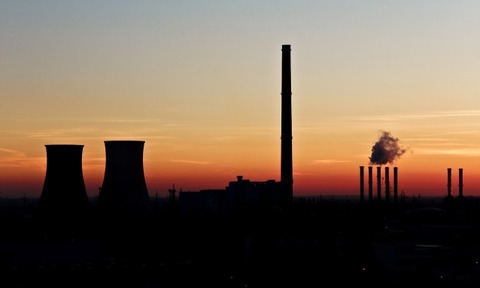Health impact of coal power up to 100 times greater than fracking, finds study
24 Oct 2017

The lifetime toxic chemical releases associated with coal-generated electricity are 10 to 100 times greater than natural gas obtained through fracking, a study shows.
That is according to a comparative analysis of the harmful health effects of electricity produced from shale gas and coal, conducted by the University of Michigan.
The study looked at the amount of toxic chemicals released into the air, soil and water during both the resource extraction and electricity generation phases of both technologies.
This analysis does not imply that concerns associated with shale gas production are unfounded
Environmental engineer Shelie Miller
Results suggest the potential human health impacts of electricity from coal are much higher than shale, the researchers said.
Shelie Miller, an environmental engineer and associate professor at the university, said: “This analysis does not imply that concerns associated with shale gas production are unfounded, only that the overall toxic load of coal is definitely greater.
“And while the study doesn’t address this directly, we should be pursuing renewables more aggressively if we really want to decrease the human toxicity burden of our energy system.”
To calculate the health impacts of particulate matter from power plants, the researchers collected emissions data from 23 natural gas and 13 coal-fired power plants in Pennsylvania.
Data from 2,900 hydraulically fractured wells in the state were used to estimate potential releases of fracturing fluid chemicals and wastewater.
The researchers used two assessment methods to estimate health impacts. Statistical tests were conducted to verify the results, the researchers said, suggesting 90% confidence in the overall finding that the human toxicity impact (HTI) of shale gas was lower than the HTI of coal.
A full account of the research has been published in the journal Environmental Science & Technology.
Readers' Comments
There are no comments on this article, leave a comment below to have your say
Have Your Say
The comments have closed for this article

